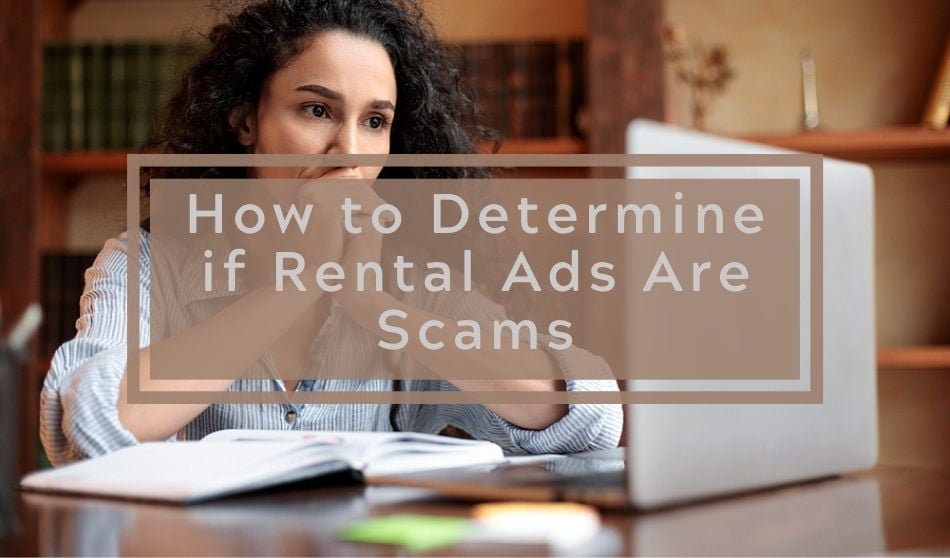Telling the difference between a genuine rental advertisement and a scam can be difficult, especially if you are a first-time renter or pressured in some other way to find a new home. While it seems as if scams should be obvious to spot, the opposite is often true. The quality of scam ads has been increasing, and this can make even experienced renters pause.
What the Ad Description Can Tell You
Even though not all landlords are experienced at writing a rental description, there are specific things in a description to watch for. One such instance is when the description is vague about, ignores, or doesn’t make any sense of the basic details of the unit. This signals that the writer is either unfamiliar with the unit or is making things up. Poor grammar, punctuation, and misspellings in the description can also be red flags, though those alone are not necessarily indicative of a scam.
There may also be descriptions for multiple units under a listing that is only for one unit. These descriptions contradict each other and can look like they are just copied and pasted from other rental ads. If details about the utilities, the unit, or the area are missing or incorrect, this can also be a signal that the poster is not familiar with the area or is targeting people from out of the area.
If an address has been provided in the ad, look up the address to see if it is listed for sale on any other site. If you do find it for sale, this is a good indicator that the poster of the ad simply took the images and/or the description. If you want to be extra sure, contact the owner to see if they decided to rent instead of sell. If not, they probably had no idea that the property was listed for rent and you’ve dodged a bullet.
It Seems Too Good to be True
Even if the listing description sounds fine, there are still other ways to tell if it is a scam or not just from the listing. If the price for the rental seems like it is too good to be true, do some research. This is especially true if the unit is listed as being in a well-populated or expensive area. Check other rental listings in the area to see what the typical price is for that type of unit.
Learn more: What Are Rental Comps?
Photos are also something to be aware of and can be a red flag. The majority of listings without photos are going to be scams, however, listings without photos can occasionally be legitimate, especially if it is being posted by someone older. Be aware if the rental listing’s photos have a watermark on them and consider doing a reverse image search on them. Scammers can illegally pull photos from other listing services and because of that, the photos may be misleading.
You Won’t be Allowed Inside
Always look at the property before you sign a lease or send any money to anyone. In order to make one of the final judgments on whether or not a rental listing is real, you need to be allowed to see it in person. Even if you meet someone in person who claims to be the landlord, it doesn’t mean anything and you need to see the unit with your own eyes.
If the person advertising the property only lets you inspect the property by walking or driving by, then it is a scam. If you reach out and aren’t immediately offered to be shown the available space in person or virtually, then that is also a strong indication that they have no association with the property.
They Want You to Sign the Lease Immediately
If the person that you are in contact with about the rental wants you to sign the lease immediately and without asking for references, any form of background check, or questions about your financial stability, then it is a massive red flag. You should also avoid paying a security deposit or first and last before you have seen the property, met the landlord in person, and carefully read the lease. If anyone asks you to specifically wire money, that is a clear sign of a scam. If they reach out to you with only email communication as well, then they are likely looking to only get a one-time payment from you.
How to Report a Scam
If you either spot a scam or are the victim of one, there are routes that you can take to get them reported. Report the ad to the company that it is listed on and contact the local authorities. Provide screenshots of the rental listing and of any contact you have had with the lister. In the unfortunate event that you get scammed out of money, you may also have the option to pursue the case in small claims court.





